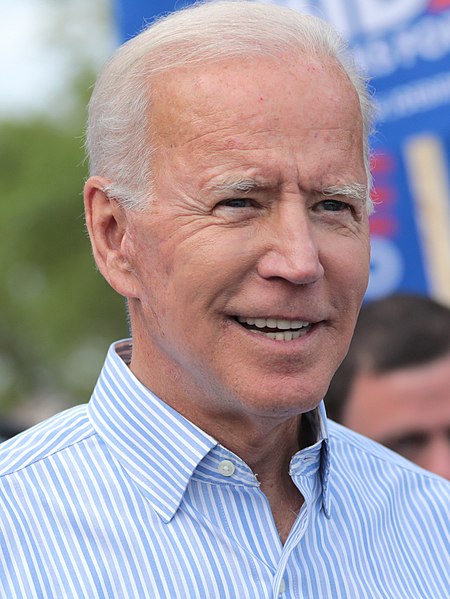In Part One of my “what is” post on Critical Race Theory (CRT), I covered what the theory is, as well as some interesting things I learned about the theory. However, at the end of Part One, I talked about some questions raised by both CRT and the things I learned from it. Those questions include:
- What are people angry about with CRT in the current political discourse?
- If this theory has been around for decades, why are people only now getting angry about this?
- Why is it conservatives who are getting angry about CRT when many of the most prominent critical race theorists critique liberal approaches to racism?
- Is this anger justified?
Answers to the first, second, and third questions I pose here help us answer the fourth question, so grab some popcorn, and let’s get started…
A fair bit of the attention on CRT appears to stem from one person: Christopher Rufo. Rufo, who is a senior fellow at the Manhattan Institute (a conservative think tank), heard from municipal employees in Seattle, Washington about anti-bias workforce training[1] that he perceived to go too far. He summarized those findings in an article for the City Journal, the Manhattan Institute’s magazine. The article was a major hit and led to discoveries from him about similar trainings happening elsewhere.[2] Among the things he noticed from the trainings was that they cited people who were deeply involved in scholarship related to CRT. Rufo thought that in CRT, he found the perfect term, for as he put it himself, “Its connotations are all negative to most middle-class Americans, including racial minorities, who see the world as ‘creative’ rather than ‘critical,’ ‘individual’ rather than ‘racial,’ ‘practical’ rather than ‘theoretical.’ Strung together, the phrase ‘critical race theory’ connotes hostile, academic, divisive, race-obsessed, poisonous, elitist, anti-American.” Furthermore, he concluded, it is not “an externally applied pejorative” unlike some terms (think of the term “liberal snowflakes” as an example of an externally applied pejorative), but is instead “the label the critical race theorists chose themselves.”[3]
Rufo was correct in thinking he found the perfect term (at least from the standpoint of trying to get national attention), for his work continued getting attention to the point that he appeared on Tucker Carlson Tonight in September 2020—a show in which Rufo called on then-President Donald Trump to ban CRT in workforce trainings the federal government did. Within weeks, Trump did exactly what Rufo wanted him to do.[4]
However, Trump lost re-election. But just because Trump lost doesn’t mean that the movements on CRT from the American right ended—not by any means. Instead, the attention that Rufo and others had on CRT shifted from workforce trainings to K-12 classrooms.[5] This brings us to more or less where we are today on CRT, which is that there is a fear among many on the American right that the theory rewrites American history in a way that would “persuade white people that they are inherently racist and should feel guilty because of their advantages.”[6] The center of that concern about the rewriting of American history focuses on the classroom, with the concern that young kids would be indoctrinated in this seemingly harmful way by CRT. Now, even the slightest bit of concern that kids are being “indoctrinated” with CRT creates anger among some.
But is this anger justified?
This answer is going to upset some people, but…no.
Here’s the thing about CRT and K-12 schools: for all the chatter of CRT being taught to schoolchildren, the teaching of the theory is usually not required at the K-12 level.[7] In a survey of more than 1,100 teachers across the United States conducted by the Association of American Educators, which is a nonpartisan professional group for educators, it was found that 96% of respondents say that their schools do not require them to teach CRT.[8] Instead, the teaching that does happen on CRT largely occurs in law schools and graduate programs.[9] Needless to say, the panicked rhetoric on CRT in K-12 schools just doesn’t seem to match up with what is happening on the ground.
What I’m guessing (and perhaps my guess is wrong, as I am not a teacher myself) is that the rhetoric with CRT has gotten mixed in there with larger, yet important, discussions on how classrooms should navigate through topics of race and racism in classrooms—a hot-button discussion issue in light of the events of the last few years in America, ranging from the increased visibility of white supremacy to the killings of George Floyd, Breonna Taylor, Ahmaud Arbery, and others. Such discussions are important and needed, though even without CRT in the mix these discussions would be a source of major division. But I fear that heading into such discussions with the falsehood that CRT is being taught and is indoctrinating K-12 students only makes those already difficult conversations even more so.
Those conversations need to happen, though. They need to happen because there continue to be stark racial disparities in the United States, and they should not be ignored. The racial disparities in everything from incarceration rates[10] to educational attainment,[11] from health care coverage[12] to deaths from gun violence,[13] are so great that we would be doing an injustice to ourselves and others if we were to just try to sweep such disparities under the rug. One can debate when to have these conversations with schoolkids, and how to have them, but we would not be truthful as a country about our current disparities if we never had those conversations anywhere.
[1] https://www.npr.org/transcripts/1012696188
[2] https://www.newyorker.com/news/annals-of-inquiry/how-a-conservative-activist-invented-the-conflict-over-critical-race-theory
[3] Ibid.
[4] https://www.npr.org/transcripts/1012696188
[5] https://time.com/6075193/critical-race-theory-debate/
[6] https://apnews.com/article/what-is-critical-race-theory-08f5d0a0489c7d6eab7d9a238365d2c1
[7] A Reuters/Ipsos poll found that 22% of respondents who said they were familiar with CRT (and most poll respondents said they weren’t familiar with CRT) believed that it is taught in most public high schools: https://www.reuters.com/world/us/many-americans-embrace-falsehoods-about-critical-race-theory-2021-07-15/
[8] https://www.nbcnews.com/news/us-news/teaching-critical-race-theory-isn-t-happening-classrooms-teachers-say-n1272945
[9] https://www.bbc.com/news/world-us-canada-57908808
[10] https://www.usnews.com/news/best-states/articles/2021-10-13/report-highlights-staggering-racial-disparities-in-us-incarceration-rates
[11] https://nces.ed.gov/programs/raceindicators/indicator_rfa.asp
[12] https://www.kff.org/racial-equity-and-health-policy/issue-brief/health-coverage-by-race-and-ethnicity/
[13] https://www.kff.org/other/state-indicator/firearms-death-rate-by-raceethnicity/?currentTimeframe=0&sortModel=%7B%22colId%22:%22Location%22,%22sort%22:%22asc%22%7D


